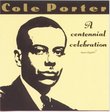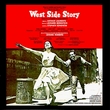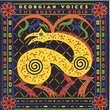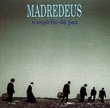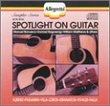| All Artists: Jean-Philippe Rameau, Frans Brüggen, Orchestra of the Eighteenth Century Title: Rameau - Orchestral Suites ~ Naďs ˇ Zoroastre / Orchestra of the 18th Century ˇ Brüggen Members Wishing: 2 Total Copies: 0 Label: Glossa Release Date: 9/25/2001 Album Type: Import Genre: Classical Styles: Opera & Classical Vocal, Historical Periods, Baroque (c.1600-1750), Symphonies Number of Discs: 1 SwapaCD Credits: 1 UPCs: 675754425128, 8424562211063 |
Search - Jean-Philippe Rameau, Frans Brüggen, Orchestra of the Eighteenth Century :: Rameau - Orchestral Suites ~ Naďs ˇ Zoroastre / Orchestra of the 18th Century ˇ Brüggen
CD DetailsSimilarly Requested CDs
|
CD ReviewsRameau for Orchestra Robin Friedman | Washington, D.C. United States | 11/27/2006 (5 out of 5 stars) "Jean Phillippe Rameau (1685 -- 1764) began to compose opera only when he reached the age of fifty. He wrote over thirty operas which both popular and controversial in his lifetime. Alas, they soon faded from active performance. Rameau's operas contain much inspiring music, for both orchestra and singers. A major difficulty with performing Rameau's operas in full lies in the conventions of French music of his day in which musical sections, called divertissements, were separated from the dramatic sections in which the plot was developed. Thus, Rameau's music can usefully be approached by selections from the operas in which the musical interludes are gathered together. In this CD performed by the Orchestra of the Eighteenth Century under the Direction of Frans Bruggen, orchestral selections from two Rameau operas, "Nais" and "Zoroastre" have been compiled to form two orchestral suites. Frans Bruggen, who had been a virtuoso performer on the recorder, formed the Orchestra of the Eighteenth Century in 1981, and it has gathered an enviable and well-deserved reputation for its performance of early music on period instruments. In 1997, Bruggen and the Orchestra formed their own label, "The Grand Tour," for their CD releases, and this CD is part of that series. Virtually all early French music, including the orchestral music from the operas presented here is based upon dance. Thus, both the orchestral suites derived from "Nais" and "Zoroastre" are full of French dance forms, including gavottes, musettes, rigaudons, sarabandes, passepieds, minuets, and more. The selections also include overtures, which in Rameau set the stage for the drama,, airs, and short pieces descriptive of the dramatic action. The works here include extensive solo passages for winds, particularly the flutes. Rameau's music is both graceful and dramatic, and it is full of contrast, rhythm, and harmonic daring. The first suite on this CD consists of twelve numbers from Rameau's pastoral opera "Nais". This opera was written for the French court in the mid-1640s and it features the nostalgic longing of French nobility for a rustic, idylic rural life. Following a graceful overture, the suite consists of a series of varied dance forms celebrating the life of the country. Rameau composed "Zoroastre" in 1649 and revised in in 1656. "Zoroastre" was a pivotal opera for the composer though it is rarely performed. It tells the story of the great Persian prophet Zarathustra (Zoroaster) who founded a great ancient monotheistic religion that survives today based upon the conflict between good and evil and the ultimate triumph of the good. Rameau's opera is also heavily influenced by Freemasonry and is a predecessor of Mozart's "The Magic Flute". The opera is cast as a love story between forces of good and evil, with good winnning out at last. The suite from "Zoroastre" is both lengthier and more complex that the suite from "Nais". It opens with a dramatic overture which, for the first time, works to tells the story of the upcoming opera. Intermixed with the dance movements are selections showing the power of goodness, the wickedness of the forces of evil, and the contest between good and evil in the minds of people. There are stirring passages for flute, percussion, and tambourine, and a musically complex closing section. This CD offers a wonderful introduction to the operatic world of Rameau -- or at least to the orchestral part of that world. I suggest those interested in Rameau combine this CD of orchestral music from "Nais" and "Zoroastre" with a CD of selections from the rich vocal music of Rameau's operas. These CDs typically have the advantage of drawing from a larger selection of operas. I recommend a excellent CD on the Hyperion label, called "Regne Amour" which features love songs from several Rameau operas, including "Zoroastre," beautifully performed by Jeffrey Skidmore conducting Ex Cathedra with Carolyn Sampson as the soprano soloist. Robin Friedman" Beautiful!!! J. C. de Oliveira | Philadelphia, PA USA | 02/28/2006 (5 out of 5 stars) "Beautiful interpretation! I have acquired others works performed by Frans Bruggen and the Orchestra of the 18th Century. I highly recommend this CD."
|

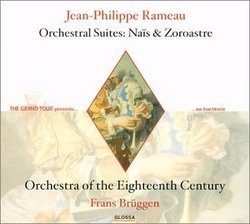
 Track Listings (29) - Disc #1
Track Listings (29) - Disc #1
